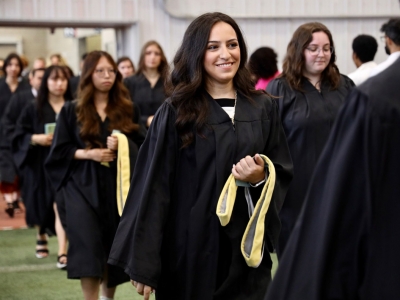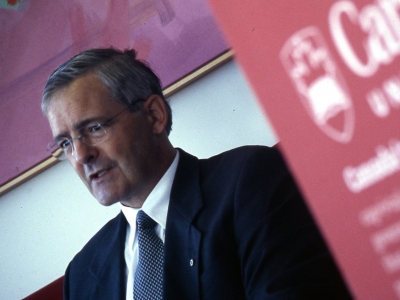Three Carleton University research projects on recruiting global talent, ending youth homelessness and increasing the well-being of rural communities have been supported at almost $200,000 each by the Social Sciences and Humanities Research Council (SSHRC).
Carleton’s Martin Geiger in the Department of Political Science, Jacqueline Kennelly in the Department of Sociology and Anthropology, and Paul Peters, Department of Health Sciences, received Partnership Development Grants.
“The social sciences and humanities have always been an integral part of Carleton’s research,” says Rafik Goubran, vice-president (Research and International). “These projects highlight innovative approaches to current issues in our communities across Canada that will greatly benefit society.”
Geiger’s project focuses on Canada and China in the global competition for highly skilled migrants and the recruitment and retention of global talent for innovation.
Canada is a leading recruiter of highly skilled professionals, including from China, while China has emerged as a global innovator. Much of its recent growth and strength has benefitted from increasing numbers of highly skilled Chinese returning to mainland China.
This research partnership with industry and government will assess how companies in major technology clusters in China and Canada can compete for talent and retain them. Geiger examines how these clusters and their corporate and non-corporate stakeholders can best use global talent in order to innovate and maintain their competitiveness.
From industry recommendations to scholarly publications and media opinion pieces, this project will address the collective need for talent mobility and innovation.
Kennelly’s project, Working Upstream, is aimed at preventing and ending youth homelessness by improving existing policies to create better educational responses.
Her research recognizes that Canada will not be able to successfully address the homelessness crisis if preventative approaches are not integrated into Canada’s policies.
The project has found that adult homelessness often starts in youth. With schools acting as second homes for youth, it’s the place to start preventing adult homelessness before it begins.
“Currently schools do not have homelessness on their radar, at least not officially,” says Kennelly. “Individual teachers or principals might be aware of the situations for some young people who are homeless, but we need to develop provincial standards to ensure that young people are connected with supports as soon as they are at risk of homelessness.”
Working Upstream will build on school-based prevention by asking important questions and connecting children with the best support.
Through workshops, webinars and curriculum recommendations, the project hopes to gather evidence-based resources to inform school professionals about how they can best prevent homelessness.
Peters received funding for his Free Range International Knowledge Partnership.
The partnership is an international collaboration of institutes and researchers who have made community-level rural research a priority.
“This funding is about providing emerging scholars with the opportunity to interact with international partners and communities on projects to improve the health and well-being of rural and remote residents,” Peters says.
The platform’s goals are to facilitate international knowledge exchange, ‘breed better students’ through field-based interchange and collegial support, develop innovative approaches to issues faced by rural communities, and enhance international research partnerships.
By connecting international institutes and diverse scholars, Free Range is an opportunity to better partner with communities and decision-makers on how to approach complex problems and the policies to address them.
Media Contact
Steven Reid
Media Relations Officer
Carleton University
613-520-2600, ext. 8718
613-265-6613
Steven_Reid3@Carleton.ca
Carleton Newsroom: https://newsroom.carleton.ca/
Follow us on Twitter: www.twitter.com/Cunewsroom
Need an expert? Go to: www.carleton.ca/newsroom/experts
Wednesday, July 17, 2019 in News Releases
Share: Twitter, Facebook



